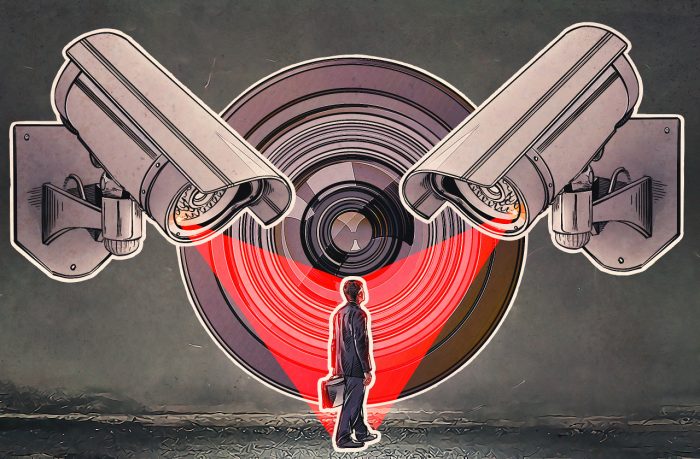About a year ago I implanted a biochip in my hand, embarking on a broad experimental journey. My aim is to understand how the connected humans of the future will live — and to get a jump on what can go wrong. I started writing down the insights I gathered and publishing them on this blog. That’s how the #BionicManDiary was born.
You are reading the eighth entry in my diary: about jobs that are just being conceptualized today but will be all the rage tomorrow.
1. DNA engineers
Yes, this profession already exists, although in a primitive form compared with what I expect to see soon. Today, professionals try to tackle physiological problems by using DNA engineering. Just 1 gram of DNA stores 700 TB terabytes of information; a package of data this huge can be experimented with eternally. Just to give you the sense of magnitude, a password containing 16 symbols would take a modern computer 10,000 centuries to decrypt. Imagine, how long it would take to decipher 700 terabytes! In the very near future we will see great demand for people who can professionally build ideal combinations of DNA for various applications.
2. Human organ breeders
Today, it’s possible to grow 11 parts of the body in the lab (yes, including sex organs — make us proud, geeks). We can already use 3D printers to print just about anything, even spare parts for rockets, ton to mention human implants. I see it as quite probable that the design and production of biological implants for humans will scale to become massive in the next three to five years, eventually leading to a new occupation, a human organ breeder. These professionals will grow or print body parts and organs for medical and research needs.
3. Mars colonists
Elon Musk is already seriously considering the colonization of Mars. He sees people embarking on the first human expedition to Mars in 2018 (just around the corner). It will be a one-way trip for many of the colonists.
4. Space flight attendants
Having consumers on board adds some crew requirements: It will have to include professionals to deal with passengers. Such people will be properly trained to ensure onboard safety and to supervise the key gear, ecosystem, and infrastructure of the spaceship. They will also need skill in psychology.
5. Interplanetary communications engineers
It takes a signal from Mars about 15 minutes on average (from 3 to 22, depending on the current distance between the planets) to reach Earth. And another 15 minutes to travel back. Forget about Netflix; basic Internet access will be a serious issue. The problem urgently requires resolution, and finding that will require a new class of professionals who will build a new fundamental communications architecture. For example, they might try sending a “dump” of first-priority data on the Internet to Mars, and later develop an autonomous Martian Internet that would exchange only critical data with the Internet on Earth.
Curisoity rover may have figured out how to catch them all. How far will you go for #PokemonGo? pic.twitter.com/W0W6up9DEG
— Mars One (@MarsOneProject) July 26, 2016
6. Colonial law enforcement officers
During the first phase of terraforming, police and military structures will be unnecessary. But once the colony’s population exceeds, say, 100 people, Martian sheriffs are bound to be needed. And a population in the millions will eventually want sovereignty — and armed forces. Personally, I envision a scenario like that of Great Britain and the USA: Ultimately, Mars and Earth will live in peace, but first they’ll need to clear the air.
7. Space miners
According to NASA, the asteroid belt near Earth contains 1.1 to 1.9 million large asteroids and several million small ones. Many of them have extractable resources, including water. Here’s some food for thought: huge, miles-long chunks of gold, platinum, uranium, plutonium, zinc, and many other elements are floating around out there. One such piece of gold could be worth the total reserve assets of every country on Earth. There’s already interest in mining sites on asteroids. By 2025, such projects might become a reality.
Of course, the majority of the work will be automated. But this process still requires people. From an economic standpoint, it’s much wiser to have small reloading terminals in space and thus optimize logistics. The fishing industry works in a similar fashion: Full-fledged floating facilities in the open sea house working families. Basically, I see many opportunity for the romantic nomads of tomorrow: Just thumb a lift to as far as Saturn and mine priceless minerals for noble corporations like Weyland-Yutani.
8. Drifting city nesters
Planets far, far away are not the only domain suitable for colonization. Our very own Earth is not 100% utilized. Recently I stumbled on an interesting project: a prototype of a drifting city. This wonder of a brilliant engineering mind is a drifting skyscraper powered entirely by renewable energy. By the way, there are about a dozen such projects. I am positive such colonies will appear pretty soon. The only thing needed to make this happen is the strong will and enthusiasm of some crazy billionaire like Elon Musk.
9. Constructors of solar engines
Oil companies are doomed — just as tobacco companies are. I am an ardent advocate for Elon Musk in his venture of changing people’s mind-sets. We seem unable to soar above our own problems and look at them from a better perspective; we burn hydrocarbons and ultimately kill our own planet even though our sun’s massive energy is available, free, and perpetual (for the majority of living beings). Tesla Cars proved that electric vehicle infrastructure is real. In the upcoming years, there will be immense interest in engineers, physicists, and constructors of new type of engines.
https://www.instagram.com/p/BHupJSzBeyh/
These engines will use renewable energy: sun, wind, hydrogen, controlled nuclear fusion, and other sources of energy yet to be discovered. Demand has already started to grow for engineers. By the way, HyperLoop is recruiting.
10. Developers of auxiliary infrastructure for autonomous cars
Autonomous cars have been a thing for quite a time, with major automakers having set foot into this new business. In other words, the question is not if we will have self-driving cars but when. But making a smart car is not enough. We need infrastructure: smart parking lots that communicate information about free spots directly to the car; smart charging stations that preemptively invite cars to recharge right before they need to; and many other things.
City infrastructure as well, including public transportation, power stations, supply, safety, will need to be aligned with any type of driverless cars. That’s why specialists in this sphere will be in high demand: improving any infrastructure and ecosystem is not a static state, it’s an ongoing process.
11. Security engineers for industrial control systems and critical infrastructure
Do you think a nuclear power plant or a smart city should be controlled by Windows or another user-class operating system? In my view, that would be totally unacceptable. The chances of a regular user being hacked are about 0.001%, which is an acceptable risk (by the way, you reach such a low level of probability by using a best-in-breed security solution). But the probability of a nuclear attack arranged by hackers should be effectively zero..
Should we be more concerned about #smartcity tech? https://t.co/dfMaNoPw4E #IT #IoT #smartcities pic.twitter.com/3MwXdMQB4N
— Kaspersky (@kaspersky) August 8, 2016
In 1961, the US very nearly caused a nuclear explosion in North Carolina. The impact would have exceeded that of Hiroshima more than two hundredfold. This is no joke. In 1961, pure luck saved us. Today, practically everything is controlled by a computer — and that will remain true for the foreseeable future. So, at the very least we had better make sure that hackers can’t lay their hands on the most critical systems — strategic weapons, water supplies, the electric grid, and other parts of critical infrastructure. Our aim as humanity is to migrate all objects of critical infrastructure to secure operating systems which exclude any possibility of a hack or failure. Such solutions exist. Professionals to innovate and implement them are needed starting right now.
12. Data scientists
Humans learned in the late sixteenth century about the existence of bacteria. Before then, people tended to attribute all sorts of events, like diarrhea resulting from bad food, to magic. Then, a microscope opened our eyes to a brand new world that had coexisted with our own for millions of years. The same is happening today with data.
A world of data surrounds each person. The data includes insight on what and how often we eat, how often we run, what we buy, how much food we consume, how long we drive, where traffic jams usually are, whether we married, divorced, and much more. Looking at all of that data – looking through all of that data — was impossible until quite recently. Now a new kind of occupation — rocket data scientist — has professionals working with arrays of data and programming the logic of outputting and visualizing big data to get facts and figures that were never available before (like the divorce rate among blog readers or the average height of melanoma patients).
13. AI Cyberpolice
There is no single opinion on what artificial intelligence (AI) may bring us. The majority of scientists and think tanks consider it a growing threat to humanity. I personally think that AI is dangerous and carries a major threat, but the reason for that is simple: Humans took hundreds of thousands of years to evolve into intelligent beings, whereas for AI, capable of self-improvement and creating its own code and infrastructure, evolution takes mere seconds.
Simply put, AI would progress intellectually from a worm to Stephen Hawking in a couple of seconds. In another 2 seconds Stephen Hawking would be a worm to that AI. In this case, AI would deem humans worth existing only if we are an indispensable part of its ecosystem. Objectively, we are a threat from AI’s point of view, since we can press on a red button and turn the AI off.
A new class of police officers will emerge, armed not with guns but rather with high IQs. These smarties will keep AI under control and make sure its architecture and development remain within safe limits. That will be necessary at least until the singularity era comes and organic forms merge with cybernetic into a new form, Homo cyberneticus.
14. Virtual Cybertroopers
The odds of future humanity engaging in major bloody warfare are relatively low. I say that for two reasons. First, in the coming years, we will need a huge number of colonists to send to Mars, Jupiter’s and Saturn’s satellites, asteroids, and the like. Every person will be a valuable asset. Second, if we started World War III, humanity would send itself all the way back to the Mesozoic Era. No bacon, no truffles, no Shiraz!
Don’t get me wrong — the war is on. But it’s a cyberwar. The demand for “anti-hackers” is as high as ever. You can request an interview at Kaspersky Lab and get a job, provided you have the required skill set. Demand is high for such people: The army of cybercrime fighters is dramatically understaffed. So all of today’s kids who are good at calculus, programming, physics, logic have an opportunity to change the world, in the direct sense of the word.
15. Minority Report-type cops
As we collect data on everyone and everything, we let a genie out of the bottle: he is mighty but also bows to whoever rubs the lamp. Big data can optimize and improve life: eliminate traffic jams, prolong life expectancy, decrease road accidents, and much more. Big data is like a high-precision divination tool.
Have you ever wondered how Google Navigator predicts whether there are traffic jams on the way? The company does not have access to speed cameras; instead, Google has access to millions of smartphones sending data in real time. That’s how Google knows that the probability of a traffic jam on N street at 5 pm is high — historically, it’s been so.
The downside is as follows: Imagine someone has accumulated petabytes of data on billions of people over decades, has learned their habits, behavior, and so on (and that’s already happening). This data can be used to create patterns and thus predict that at a given age a sequence of events would most probably lead to some person thinking of committing a murder.
One approach could be to try to prevent such crimes before they happen — a Minority Report kind of policing. The very thought of it could keep ethicists bickering for years. I’ll leave the arguments to them and say that Thought Police is a potential hot job of the future.
16. Virtual reality architects
2016 was the year when VR headsets hit the shelves. The industry is destined to bloom, and as with most modern technologies, porn and gaming will move it forward. But once those core audiences’ basic needs have been met, the time will come to systematically develop and enhance the virtual world — and perhaps to create virtual versions of countries and continents.
For virtual reality to truly become worth being in, it has to be something more than identical building blocks — as an analogy, typical apartment block is not as appealing as unique architectural projects. Virtual reality will enable talented architects to defy laws of physics and create bold projects that would be impossible in the real world. The demand for such specialists will be immense.
17. Professional AR cyberathletes
Cybersports is a multibillion industry and it demonstrates immense growth potential, with stunning rates of adoption of new technologies. For example, drones have been around for just a few years, but a professional AR drone racing league has already formed, and it awards real prizes.
It’s a beautiful era when a person can be a professional cyberplayer and earn a decent living. Just a couple of years ago the prize pool for Dota 2 amounted to more than $6 million. With augmented reality on the rise, gaming will become even more immersive. I think new type of sport combining real life and VR action would have solid chance. In other words, in the not-so-distant future we may see real people running around a real arena wearing VR headsets, ‘shooting’ each other or opponents and crossing obstacle zones. Wow, it would be quite a sight!
18. Smart home developers
The smart home concept is not news anymore: self-opening doors, walls turning into TV screens, smart fridges … it takes an ecosystem adapted to the owner’s habits and needs, available space, members of the family, everyone’s age, and more. Developing such systems, algorithms, and use scenarios is as much art as science. People who can create such systems are already being recruited.
19. Talent explorers
Each of us is one-of-a-kind and has unique talents, but the traditional education schemes have proven ineffective for discovering talent. Many large companies such as Google and Kaspersky Lab don’t look at diplomas when recruiting; we judge candidates according to their skills and motivation.
In the upcoming 15 to 20 years a new profession will emerge: a job similar to prospector, but a prospector who searches not for natural resources but rather for true talent among people. They will check billions of social media profiles and databases, looking for certain traits that point to talented people and the early signs of genius capabilities. On finding a suitable candidate, such recruiters will use special recruitment tools to invoke emotional engagement in the candidates.
20. Digital genealogists
When we leave this world, we always leave some kind of legacy behind, whether books, photos, memoirs, or old records. Now, with social networks, we also leave a new type of legacy — a digital legacy. In no time, we will start to entrust our grandchildren with keys to cloud storage containing our files, or with our Facebook and Instagram data. Social networks already store more memories than a human can physically remember, and this information could be of much value for future generations.
21 indispensable jobs of the future
Tweet
Researching and analyzing someone’s legacy is a tedious and difficult task. In the future, professionals will create a family data tree or find an answer to a burning question by digging through our ancestors’ memories — or they’ll produce curious selections like “relatives who liked horseback riding in the last 1,000 years.”
21. Hoteliers for nostalgic people
Most of us are already constantly connected to the Internet — or will be soon. This trend will generate demand for a special form of tourism that I call “back in time” hospitality: A digital detox. It begins with a person handing over all smartphones and gadgets, and continues with a horseback ride or similar transport to a wooden shack equipped with a candle, an axe, a book, and an eco-friendly rug. The demand is not so high now, but it is growing and will continue to grow — of that I am 100% sure.
 BionicManDiary
BionicManDiary







 Tips
Tips